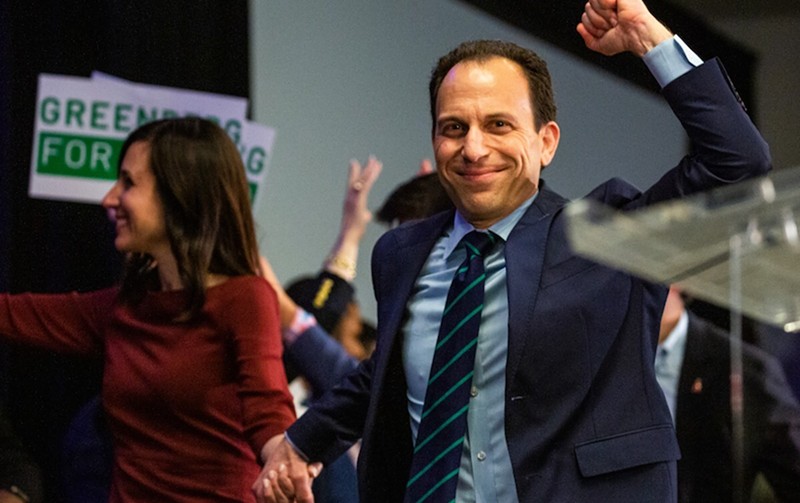Here are some of the most important bills and what they mean for Kentuckians across the Commonwealth.
HB 9: Eliminate DEI in Kentucky colleges and universities
House Bill 9 was introduced in January by Waddy Rep. Jennifer Decker (R) with the intent of dismantling diversity, equity and inclusion initiatives across Kentucky’s colleges and universities.
The bill would also restrict schools from offering courses or training based on DEI or “discriminatory concepts,” including the prohibition of “a public postsecondary education institution from providing differential treatment or benefits on the basis of an individual's religion, race, sex, color, or national origin,” according to the bill.
“This committee sub would allow our public postsecondary institutions to return their focus to providing students with a high quality academic instruction in an environment that is inclusive and welcoming to all,” said Decker on the House floor on March 15.
Opponents of the bill argue that having DEI integration at the postsecondary level would allow for students to have greater access to education to meet their needs.
“The bill creates a definition for ‘divisive concepts’ in postsecondary educational institutions that will chill speech and eviscerate organizations, activities, and administrative mechanisms (like bias incident reporting) that create a sense of safety and help create healthy environments for students from marginalized communities, among many other things,” The ACLU of Kentucky said in a letter to the House Education Committee on March 14.
Where is the bill in the legislative session? As of Feb. 14, the bill has remained on the floor as three amendments to the bill have been filed.
SB 6: DEI Elimination in postsecondary education with financial penalties
Senate Bill 6, a bill similar to HB 9 in its efforts to suppress DEI initiatives in Kentucky’s state postsecondary education facilities, was introduced on Jan. 2 with lawmakers posting nine amendments to the bill. Eight of them were defeated before the bill was passed in the Senate 68-18.
SB 6 would penalize institutions who violate the act anywhere between $1,000 and $100,000 per violation. Those violations include the penalization, discrimination or “adverse treatment due to the individual's refusal to support or endorse any divisive concept.”
Where is the bill in the legislative session? SB 6 is dead this year after lawmakers broke for a veto period, which means they will not have enough time to override a veto from Governor Andy Beshear. The bill could be refiled during next year’s legislative session.
HB 5: Safer Kentucky Act
House Bill 5 was introduced in January and has moved quickly through the legislative session, introducing harsher penalties for crimes committed in the state.
Fentanyl, which was found to have been the cause of over 1,500 overdose deaths in Kentucky in 2022, will now have a harsher sentence for a fentanyl trafficking conviction. Those found guilty of trafficking fentanyl that lead to a person’s death will be classified as manslaughter in the first degree.
Another major piece of HB 5 is the three strikes clause, which calls for a life sentence for those who have committed and were found guilty of three violent crimes in Kentucky.
“The final passage of House Bill 5 is not a surprise, but it is a disappointment,” said Kungu Njuguna, the ACLU-KY Policy Strategist in a release. “This bill will undoubtedly cost taxpayers hundreds of millions of dollars, cause irreparable harm to our houseless neighbors, unnecessarily entrap people with substance use disorder in the criminal legal system, and add to the dangerous problem of jail and prison overpopulation.”
Jefferson County, which accounts for 17% of the entire state of Kentucky’s population, only includes 12% of all people in the Commonwealth serving time for felonies. Rural counties in Kentucky like Carroll County, have imprisoned people four times the amount than Jefferson.
Costs of the “Safer Kentucky Act” could span more than $1 billion dollars over the next decade through an influx of more prisoners and the construction of more jails across the state. Though the estimates are limited, Kentucky statutes require bills to prepare costs, with just one person in the correctional system costing over $850,000 over the span of 20 years.
Where is the bill in the legislative session? After amendments one through five were withdrawn (which would have removed the three strikes clause along with other important pieces to the bill), the Senate passed the bill and has been delivered to Governor Andy Beshear (D), who vetoed it on April 9. The Kentucky legislature has the power to override his veto and make this bill into law.
HB 388: Nonpartisan elections in Louisville
House Bill 388 was introduced earlier this year and also moved quickly through the session, breaking down party affiliations for candidates running for office in Jefferson County.
It would also allow easier access for smaller communities to form their own cities within the county. These nonpartisan elections would include council members and mayoral candidates in Jefferson County.

“I think HB 388 will go a long way to helping realize the potential of merger, making all of our community more a part of our Metro government,” said Rep. Jason Nemes (R), who represents the 33rd district and majority whip in the House.
The bill includes specific language on “diversity” of political affiliation, stating: “...provide that members of local boards, commissions, committees, and other bodies created by or appointed by local governments have geographic and political party affiliation diversity…”
The Louisville Urban League, which opposes the bill, says in a release that the bill being passed “quietly” on March 20 is a clear division of its promise to transparency.
“We are also concerned that elected officials within the Louisville Metro Government are unaware or have little say on a bill that will have an outsized impact on their job,” the organization said in a statement.
Where is the bill in the legislative session? After passing 79-21 in the Senate, it was signed by both the Speaker of the House and the President of the Senate and has been delivered to the governor to sign or veto.
SB 215 Prohibition of Emission Standards
Senate Bill 215, which was filed in February, has also moved quickly through the House and the Senate. The bill looks to keep any “state agency, department, or political subdivision from adopting or enforcing emissions standards on new motor vehicles, or from requiring purchase or sale of electric vehicles.”
The bill would forbid any of those state agencies to adopt or enforce emission standards that were set by California on motor vehicles.
Kentucky’s carbon dioxide emissions from 2013 to 2021.
Kentucky is slowly dropping emission levels over the last decade, but has had an uptick since the pandemic in 2020.
Where is the bill in the legislative session? The bill passed quickly through the Senate 80-17 and was filed without the Governor’s signature with help from the Secretary of State on March 29.







